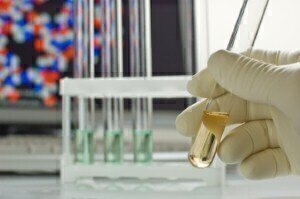Laboratory Products
Controlling Hypoxic Conditions in Cancer Research
Jan 28 2008
The hypoxic (low oxygen tension) tumour environment contains cells with particular characteristics whose main function is survival rather than reproduction. Dr Roger Phillips’ research employs cellular assays to investigate changes over a closely controlled range of oxygen tensions in response to treatment with pharmaceutical compounds designed to act selectively on hypoxic cells. Results from this laboratory have already led to two drugs entering clinical trials.
Essential to this research is the tight level of control over the gas mixture allowed by the user friendly variable atmosphere system. With carbon dioxide required to maintain culture conditions as well as low oxygen tension, the workstation also functions as a carbon dioxide incubator to maintain hypoxic conditions for longer periods. This is particularly important to ensure truly representative physiological conditions, rather than returning cells to their normal environment following treatment. Cells can be retained under hypoxic conditions during drug exposure and afterwards, allowing longer-term effects to be observed.
Targeting these cells using conventional therapies has proved problematic, as they are very resistant to anti-cancer drugs and radiotherapy. The workstation’s specialised hypoxic environment allows accurate replication of the unique biochemical pathways involved: critically important for developing biological and therapeutic understanding in the identification of new drug targets.
Digital Edition
ILM 49.5 July
July 2024
Chromatography Articles - Understanding PFAS: Analysis and Implications Mass Spectrometry & Spectroscopy Articles - MS detection of Alzheimer’s blood-based biomarkers LIMS - Essent...
View all digital editions
Events
Jul 28 2024 San Diego, CA USA
Jul 30 2024 Jakarta, Indonesia
Jul 31 2024 Chengdu, China
ACS National Meeting - Fall 2024
Aug 18 2024 Denver, CO, USA
Aug 25 2024 Copenhagen, Denmark

-(1)-(1).jpg)


24_06.jpg)













